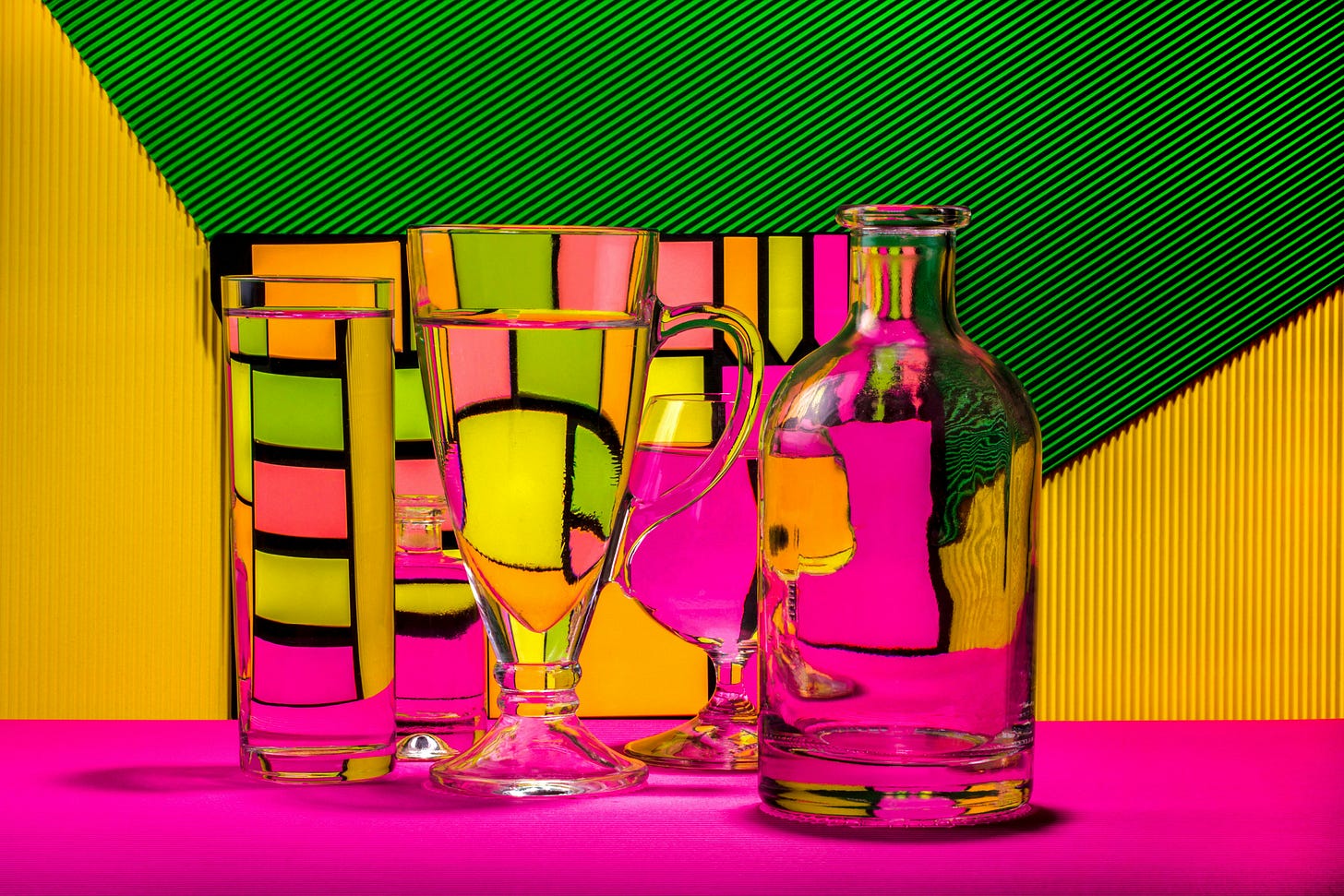Hijacked by Dopamine: The Hidden Cost of Overstimulation
Chasing highs but feeling low...
When I stopped drinking nearly two years ago, I expected to feel better immediately. More energy, clearer skin, better sleep. The usual perks.
What I didn’t expect? How painfully dull everything would feel at first. Like someone had turned the volume down on life.
I remember sitting in a bar with friends, sipping my virgin mojito, waiting for the buzz to kick in. Except it never did. The conversations dragged. The music sounded flat. The whole experience, once effortlessly fun, felt lifeless.
At first, I wondered if I’d made a mistake. I genuinely asked myself: “Wait, am I just boring without alcohol?” Had I lost my ability to enjoy myself?
It turns out, my brain wasn’t broken. It was just recalibrating. And this happens to all of us because modern life has hijacked our dopamine system, making everything feel a little numb.
How Dopamine Hijacks Your Brain (and Why You Feel Meh All the Time)
Dopamine Is Not About Pleasure. It’s About Wanting
We often think of dopamine as the "pleasure chemical," but that's not quite right. Dopamine isn’t what makes you enjoy something, it’s what makes you crave it. It’s the neurochemical that drives motivation, anticipation, and pursuit of rewards.
It’s why you reach for your phone without thinking. Why one episode on Netflix turns into five. Why that first bite of cake is incredible, but by the end, you barely taste it.
In short? Dopamine makes you chase. But too much chasing dulls the reward.
The Modern World Is a Dopamine Casino
Our brains evolved for scarcity: small, unpredictable dopamine hits from things like finding food, social bonding, or discovering something new.
But today? We are drowning in dopamine triggers.
Social media → Infinite scrolling, likes, and notifications.
Food → Hyper-palatable, ultra-processed, always available.
Entertainment → Binge-worthy shows, TikTok on 2x speed, podcasts in the background.
Self-optimisation → Chasing productivity hacks, constant learning, trying to “maximise” every moment.
We’re getting fast, easy dopamine hits all the time, and the problem is, our brain adapts.
The Dopamine Deficit Effect: Why Nothing Feels Rewarding Anymore
When you’re constantly bombarded with artificial dopamine spikes, your brain lowers its baseline levels. You stop feeling motivated by simple things—reading a book, going for a walk, cooking a meal—because your reward system has been conditioned for bigger, faster hits.
This leads to:
✅ Dullness and low motivation – Things that used to be fun feel meh.
✅ Shorter attention spans – We crave novelty but struggle with depth.
✅ Restlessness and compulsion – The urge to check your phone, snack, or refresh your inbox just to get something.
This was exactly what happened when I quit drinking. My brain was used to big, artificial dopamine spikes from alcohol, and suddenly, normal socialising felt dull in comparison.
The good news? You can reset your dopamine system. But it takes intention.
How to Reset Your Dopamine System and Feel Alive Again
If your brain feels overstimulated and underwhelmed at the same time, you don’t need a full “dopamine detox” (those extreme no-stimulation-for-30-days things are unnecessary). But you do need to retrain your brain to appreciate natural rewards again.
Here’s how:
1. Reduce Low-Quality Dopamine Triggers (stop the cheap thrills)
🚫 Limit social media, junk food, and constant background noise. These hijack your dopamine system the hardest.
🚫 Stop stacking too many stimulations at once (e.g., watching TV while scrolling your phone, eating while on your laptop).
2. Increase Effort-Based Dopamine (earn your rewards)
✅ Do things that require effort before giving a reward, like exercising before a coffee, reading before watching Netflix, or deep work before checking notifications.
✅ Delay gratification. This actually increases dopamine sensitivity over time.
3. Let Yourself Be Bored Sometimes (give your brain space to reset)
✅ Go on a 10-minute walk with no distractions (no phone, no music, no podcast).
✅ Try screen-free mornings. This helps your brain reset from constant digital stimulation.
4. Prioritise Dopamine-Sustaining Activities (build a natural baseline)
✅ Exercise – Even a 10-minute workout boosts dopamine levels without a crash.
✅ Cold exposure – A cold shower or ice bath triggers a long-lasting dopamine release (unlike social media, which crashes it).
✅ Deep work and creativity – Focused work and flow states increase baseline dopamine rather than giving you a quick high.
Try This One-Week Dopamine Reset
If you feel like nothing excites you anymore, try this for one week:
🧠 Day 1-2: No phone before 8am. Start your morning with movement or deep work.
🧠 Day 3-4: Replace Instagram or TikTok with reading or long-form content.
🧠 Day 5-6: One full day with no social media or junk dopamine.
🧠 Day 7: Reflect! What felt different? What did you notice?
Try it for a week and see what happens. More focus? Less restlessness? A deeper sense of motivation? Let me know in the comments—I’d love to hear what shifts for you.
Final Thought
When I stopped drinking, I thought I had lost my ability to enjoy life. But what I had really lost was my tolerance for natural dopamine rewards.
Rewiring your reward system takes time, but when you do? Things start to feel exciting again without needing constant stimulation to get there.




I’ve struggled with dopamine issues my whole life and it’s gotten me into trouble. Fortunately I didn’t stick with drinking or drugs but at one time, many years ago, I got high from Facebook. I am a multi-tasker. I am on my iPad as I eat breakfast, listen to this article and play multiple people chess online. This article made me realize how stimulated I am constantly. I will try your suggestions! Thank you 🙂